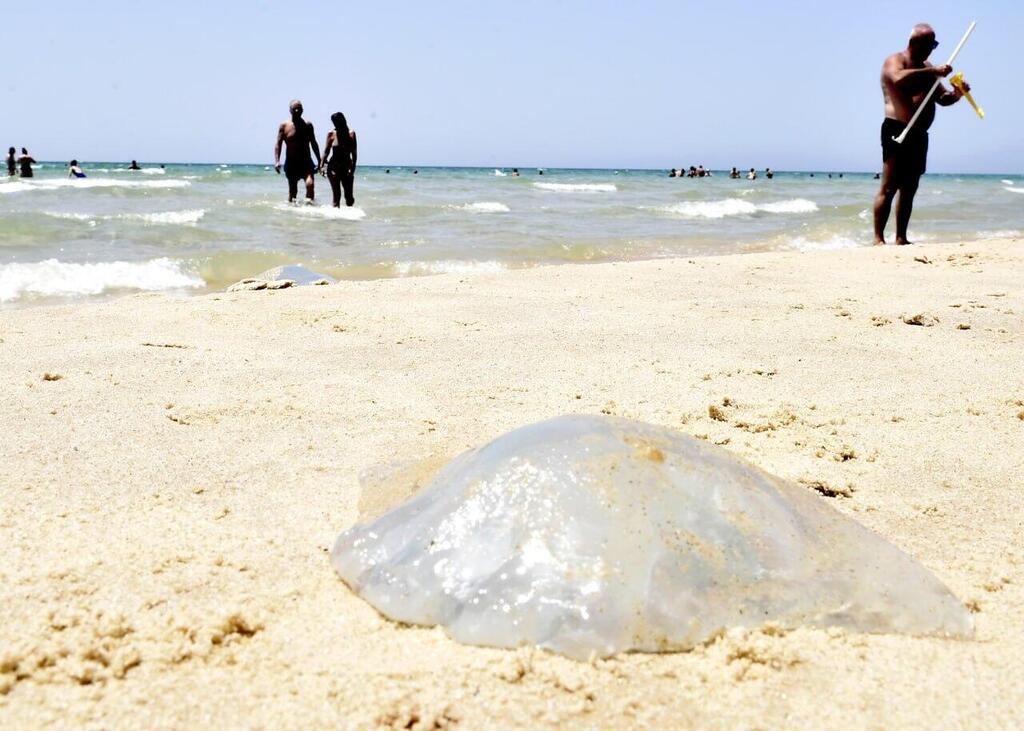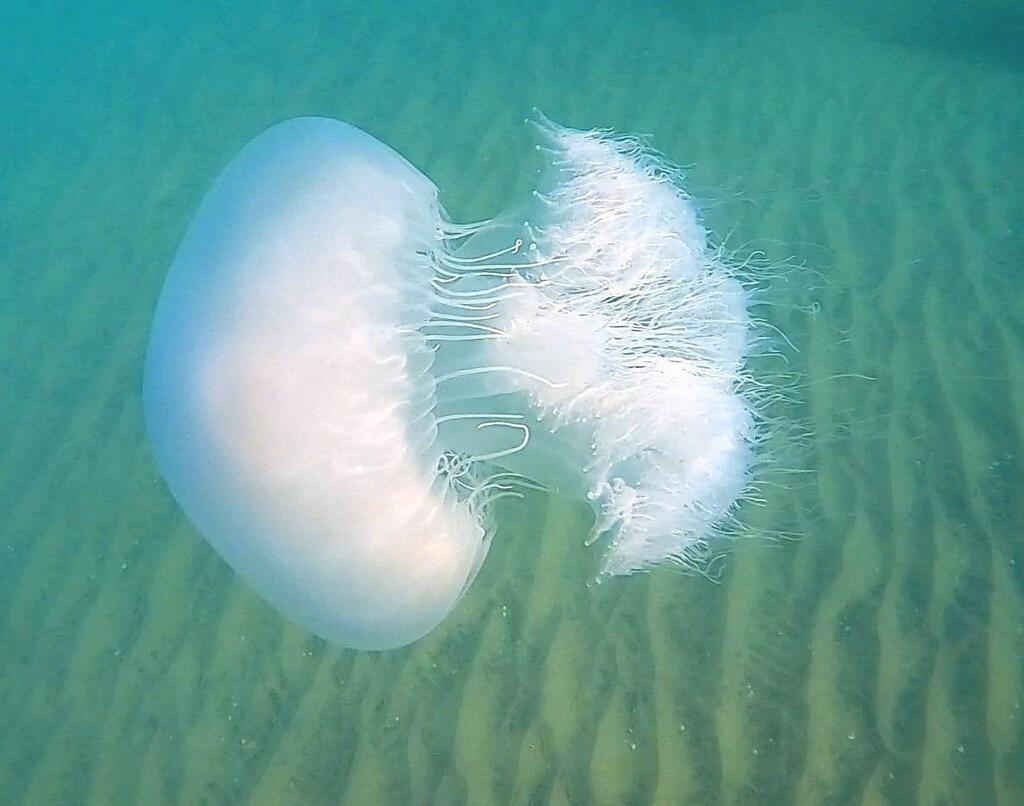Getting your Trinity Audio player ready...
Researchers from the University of Haifa and Rambam Health Care Campus have embarked on a unique study to explore the sensations and behaviors of individuals stung by jellyfish, a common menace during the summer season.
"Our findings reveal that jellyfish stings impact the general public visiting Israel's beaches," according to Dr. Dor Adelist from the University of Haifa, one of the study's authors. "Most stings are not severe and require only local treatment. While a jellyfish sting can be extremely painful, even in more severe cases no long-term injuries were reported."
The study aimed to investigate the frequency and intensity of jellyfish stings, as well as the effectiveness of various treatment methods and their impact on public health in both the short and long term. A total of 481 people participated in the study, with 440 completing questionnaires and 41 responding to questions on the beach.
According to the study, 70% of those stung reported it as the strongest sting they had ever experienced, but only about 3% sought hospital treatment. Additionally, women reported higher levels of pain than men (6 compared to 5 on a pain scale of 0 to 10) and were more likely to seek medical attention. Interestingly, almost 4-in-5 did not seek any medical help at all, which the researchers suggest indicates most jellyfish stings are not severe.
The study also revealed that 44.5% of respondents did not seek medical attention at all. The most common treatment was aloe vera, with 84.3% reporting an improvement in their condition. The second most common treatment was vinegar, which improved the condition of only 59.6% and sometimes even worsened it. Treatment with sulfadiazine cream (Silverol) improved the condition of 95.3% of users.




